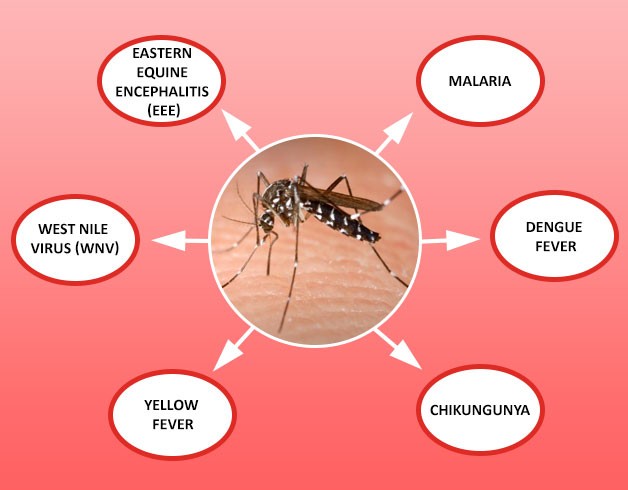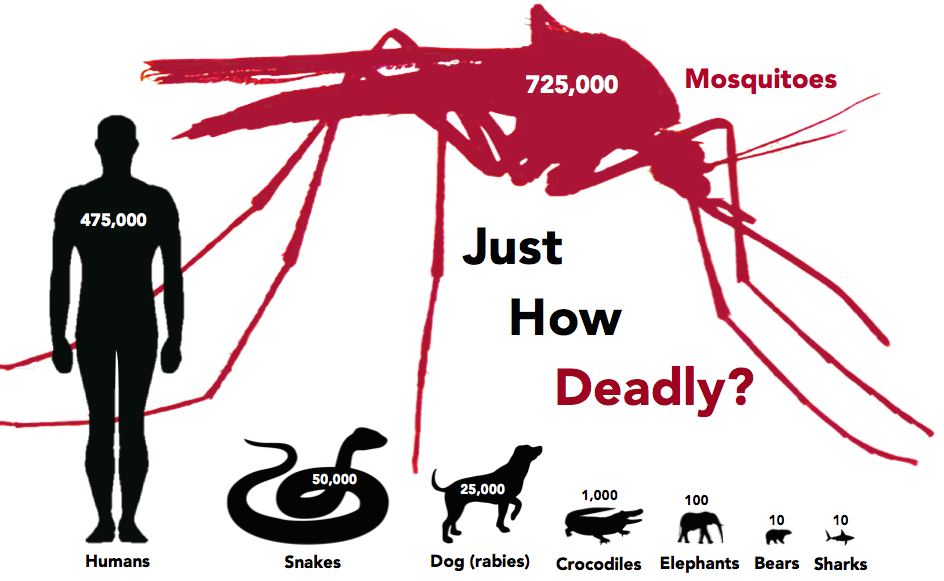Mosquitoes are one of the deadliest animals in the world their ability to carry and spread disease to humans causes millions of deaths every year

Mosquitoes: The Silent Killers
Did you know that mosquitoes are one of the deadliest animals in the world? These tiny insects have the ability to carry and spread diseases to humans, causing millions of deaths every year. This fact is particularly alarming considering their size, which often leads us to underestimate the potential danger they pose.
Mosquitoes, belonging to the insect order Diptera and family Culicidae, are found almost everywhere on Earth. With over 3,500 species known worldwide, these buzzing creatures have adapted to various environmental conditions, making them extremely resilient and successful at thriving in diverse habitats. They are particularly prevalent in warm and humid regions but can also survive in colder climates.
The most notorious aspect of mosquitoes is their ability to transmit diseases. According to the World Health Organization (WHO), they are responsible for spreading several life-threatening illnesses, including malaria, dengue fever, Zika virus, yellow fever, and West Nile virus. These diseases afflict millions of people across the globe and result in a staggering number of fatalities each year.
Malaria, caused by the Plasmodium parasite, is the most deadly mosquito-borne disease. It affects over 200 million people annually, primarily in sub-Saharan Africa. Despite efforts to combat the disease, an estimated 409,000 deaths occurred in 2019 alone, with children under five years old being the most vulnerable group. Malaria not only poses a significant health risk but also hampers economic development in affected regions.
Dengue fever, another mosquito-borne illness, has grown into a global problem. It is prevalent in tropical and subtropical regions, affecting millions of people annually. The WHO estimates that around half of the world’s population is at risk of contracting dengue. With symptoms ranging from mild fever to severe complications, this disease can be debilitating and, in some cases, even fatal. Children and older adults are particularly susceptible to severe forms of dengue.
The Zika virus gained international attention in recent years due to its links to microcephaly, a condition in which infants are born with unusually small heads and underdeveloped brains. While Zika virus infections are typically mild in adults, it poses great risks to pregnant women and can cause severe birth defects. The virus is primarily transmitted through the bites of infected Aedes mosquitoes, which are prevalent in tropical and subtropical regions.
Yellow fever, a viral hemorrhagic disease, is endemic to parts of Africa and South America. This disease can manifest in various forms, from mild cases to severe liver and kidney damage, and potentially death. Vaccination is available to prevent yellow fever, yet outbreaks continue to occur, highlighting the ongoing threat mosquitoes pose to public health.
West Nile virus, transmitted through infected mosquitoes, has spread across multiple continents since its introduction to the United States in 1999. While most people infected with the virus experience mild symptoms or none at all, it can cause serious illness, including meningitis and encephalitis. The elderly and individuals with weakened immune systems are at higher risk of developing severe complications.
To protect against mosquito-borne diseases, it is crucial to take preventive measures. Using bed nets, applying insect repellent, wearing protective clothing, and eliminating stagnant water where mosquitoes breed are important steps individuals and communities can take to reduce their risk of infection. Ongoing research, public awareness campaigns, and collaborations between governments, health organizations, and communities are vital in the fight against these deadly diseases.
In conclusion, mosquitoes may be small, but their impact on human health is enormous. The diseases they carry and transmit cause millions of deaths each year, particularly in regions with limited access to healthcare resources. It is essential to continue studying these insects, developing effective prevention strategies, and improving treatments and vaccines to combat the threat they pose. By raising awareness and taking appropriate measures, we can collectively reduce the devastating impact of mosquito-borne diseases on global health.
Image Credits:
Source:
Related Posts
Quick Links
Legal Stuff



